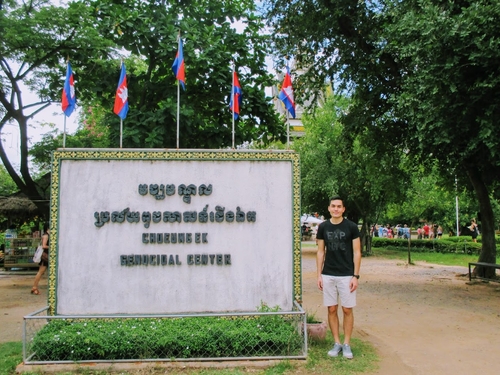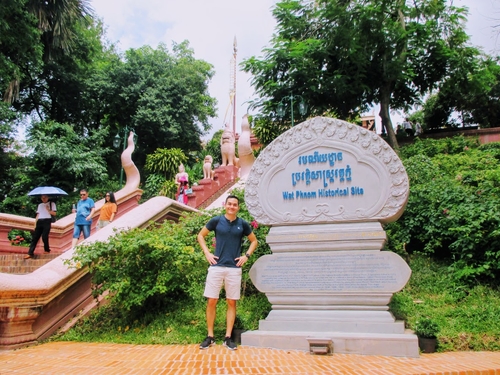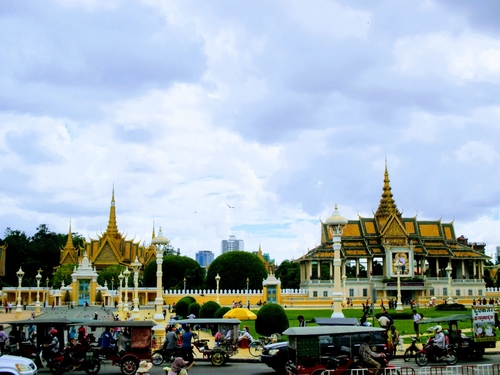Week Two

Last weekend I had the chance to do more exploring in Phnom Penh. On Saturday, I visited the Killing Fields of Choeung Ek which was the site of a Khmer Rouge extermination camp. I learned more about Cambodia’s tragic history which helps provide context to the immense challenges to development efforts in the country. On a lighter note, I visited Wat Phnom on Sunday which is one of the oldest Buddhist temples located in Phnom Penh as it was built in 1372. After lunch, I toured the central market and the riverfront area. I continue to be amazed by the history and the sights in the country and I look forward to doing more exploring.

I have been keeping very busy in my second work week in Cambodia as I have begun delving into legal research. I would like to share a little about my research assignment and the scope of my work this summer. Over two million Cambodians died of torture, starvation or execution at the hands of the ruthless Khmer Rouge regime from 1975 to 1979. However, nearly forty years later, Cambodia’s recovery and development efforts have been stalled by a deficiency of cooperation and information sharing among the stakeholders in Cambodia. ODC is the first open data platform in the country and began its operations in 2011 as a project of the East-West Management Institute (“EWMI”). The Cambodian government formally granted ODC local NGO status in August 2015 after a long and laborious registration period. In January 2016, ODC content migrated to the Generation II platform of Open Development Mekong (“ODM”) which is a regional open data platform. As the leader of the open data movement in Cambodia, ODC provides the public with, “up-to-date, accurate information about Cambodia and its economic and social development.” (ODC website). ODC’s platform helps to facilitate, “research and communications between the public, private companies, civil society, and governments.” (ODC website). By breaking down barriers between people and information, ODC has emerged as an integral stakeholder in Cambodia’s future.

However, as an information publisher, ODC is not immune from Cambodia’s longstanding resistance towards open data and it faces recurrent political and legal pressures. The focus of my research this summer will be copyright law. Copyright can serve as an important asset for publishing organizations such as ODC to protect content creation and promote transparency. Traditionally, copyright law was author-centric because the laws were promulgated to protect the moral and economic rights of authors. However, modern copyright law is actually more user-centric because it is concerned with improving access to these original creations to promote social and economic development. ODC depends on both traditional and modern understandings of copyright. ODC needs traditional copyright protections to safeguard its work because it publishes content pages, maps, and news stories. ODC also relies on modern notions of copyright in its roles as a news aggregator and derivative works producer because the creation of these works depends on access to original copyrightable works.
These copyright provisions do not stand alone and they must be evaluated in the larger legal framework and political environment in Cambodia. My main research priorities this summer will be to develop an internal ODC document on copyright protections and explain how copyright may be used to protect its creations and safeguard its role as the country’s lead organization in the open data movement. Additionally, the research will examine the larger political and legal operating environment of ODC and develop recommendations on how ODC can navigate these challenges. This document will hopefully provide critical insight to staff, partners, donors, and board members on copyright in Cambodia. My preliminary research findings have been promising and I am beginning to grasp the importance of this subject matter for ODC operations. I will be providing updates throughout the summer on my research findings.